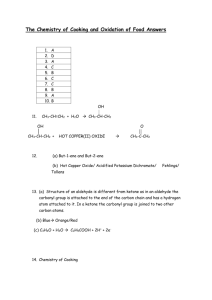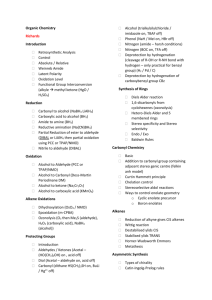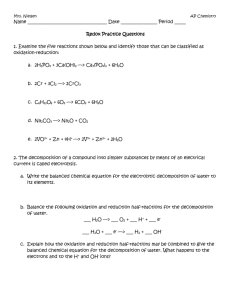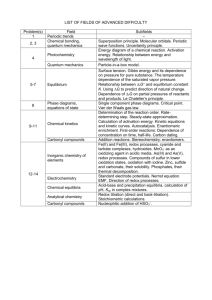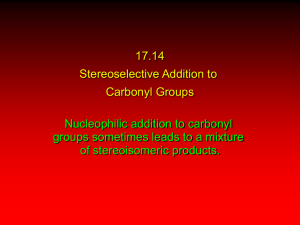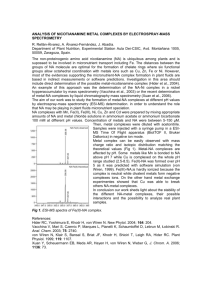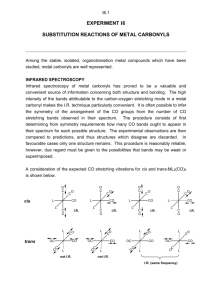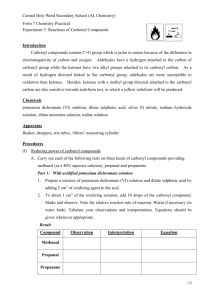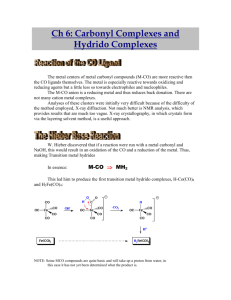ABSTRACT SPECTROELECTROCHEMISTRY AND
advertisement
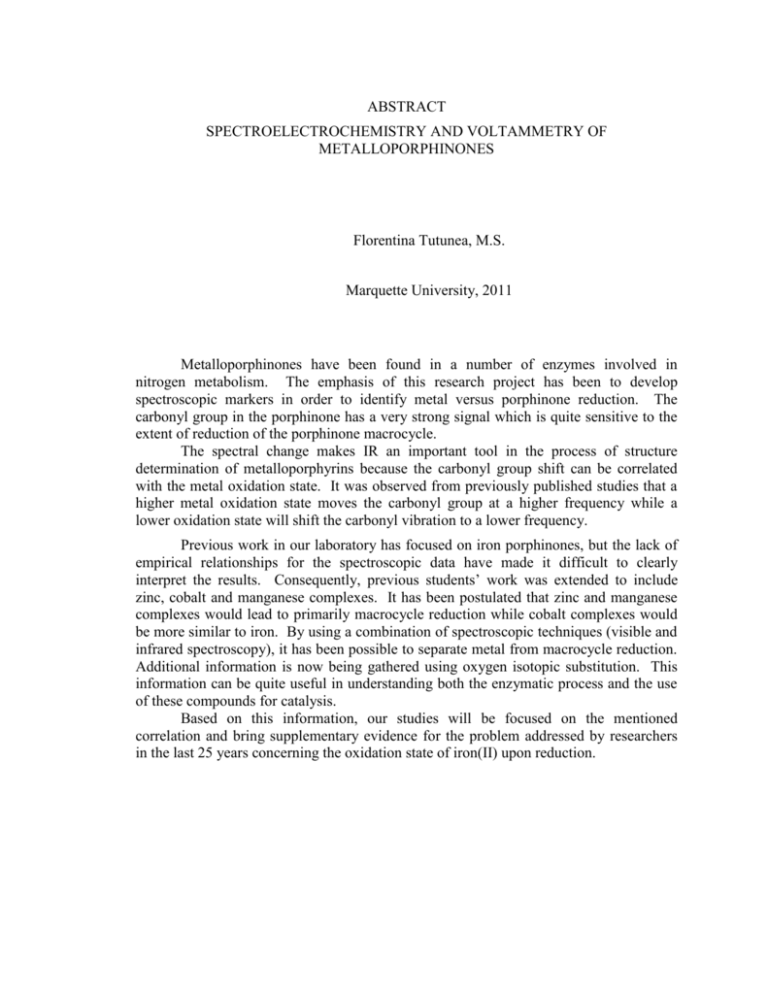
ABSTRACT SPECTROELECTROCHEMISTRY AND VOLTAMMETRY OF METALLOPORPHINONES Florentina Tutunea, M.S. Marquette University, 2011 Metalloporphinones have been found in a number of enzymes involved in nitrogen metabolism. The emphasis of this research project has been to develop spectroscopic markers in order to identify metal versus porphinone reduction. The carbonyl group in the porphinone has a very strong signal which is quite sensitive to the extent of reduction of the porphinone macrocycle. The spectral change makes IR an important tool in the process of structure determination of metalloporphyrins because the carbonyl group shift can be correlated with the metal oxidation state. It was observed from previously published studies that a higher metal oxidation state moves the carbonyl group at a higher frequency while a lower oxidation state will shift the carbonyl vibration to a lower frequency. Previous work in our laboratory has focused on iron porphinones, but the lack of empirical relationships for the spectroscopic data have made it difficult to clearly interpret the results. Consequently, previous students’ work was extended to include zinc, cobalt and manganese complexes. It has been postulated that zinc and manganese complexes would lead to primarily macrocycle reduction while cobalt complexes would be more similar to iron. By using a combination of spectroscopic techniques (visible and infrared spectroscopy), it has been possible to separate metal from macrocycle reduction. Additional information is now being gathered using oxygen isotopic substitution. This information can be quite useful in understanding both the enzymatic process and the use of these compounds for catalysis. Based on this information, our studies will be focused on the mentioned correlation and bring supplementary evidence for the problem addressed by researchers in the last 25 years concerning the oxidation state of iron(II) upon reduction.
